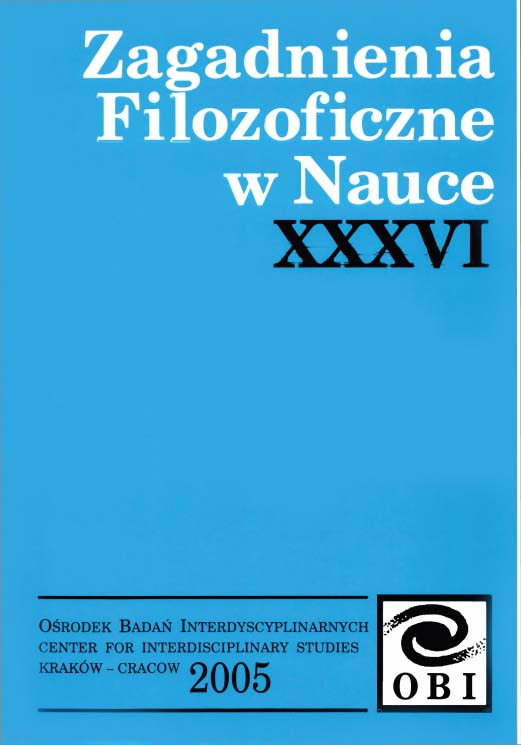Tadeusz Garbowski i filozofia jednorodności
Tadeusz Garbowski and his philosophy of homogeneity
Author(s): Maciej KociubaSubject(s): Philosophy of Science
Published by: Copernicus Center Press
Keywords: evolutionary biology; Tadeusz Garbowski; homogeneity;
Summary/Abstract: Tadeusz Garbowski (1869-1940) was an original thinker, preoccupied with zoology and ethology, and also the philosophy of nature. First, he worked in Vienna where he got his PhD and then (1898) he moved to Cracow and continued his studies at the Jagiellonian University. He developed his epistemological concepts with reference to natural sciences, mainly to evolutionary biology. With his naturalistic evolutionism and evolutionary epistemology he was ahead of concepts of Lorentz and, to some extent, K. R. Popper. Although he did not use the concept of teleonomy, which in our times was popularized by a French researcher F. Jacob, he interpreted spiritual culture created by a man as a kind of adaptation in the evolutionary sense. The concept of homogenis makes the core of Garbowski's epistemology and methodology. Garbowski claimed that the aim of science and philosophy is discovering and expressing the truth. The truth is homogenous and undivided, and experiment at the base of philosophy is also uniform and homogenous. Homogenism is a radical monism with naturalistic background.
Journal: Zagadnienia Filozoficzne w Nauce
- Issue Year: 2005
- Issue No: 36
- Page Range: 3-30
- Page Count: 28
- Language: Polish

